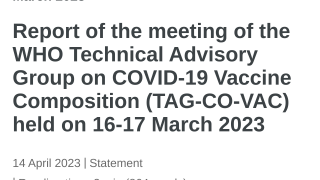mRNA COVID-19 Vaccination Increases Endothelial Inflammatory Markers and ACS Risk

A new study was presented by Dr. Steven Grundy at the Scientific Sessions of the American Heart Association annual conference on November 8, 2021, and published in the Circulation scientific journal, found an increased heart health risk related to mRNA based COVID-19 vaccines.
These researchers conclude 'that the mRNA vaccine dramatically increases inflammation on the endothelium and T cell infiltration of cardiac muscle and may account for the observations of increased thrombosis, cardiomyopathy, and other vascular events following vaccination.'
This team used the PLUS Cardiac Test, a clinically validated measurement of multiple protein biomarkers which generates a score predicting the 5 yr risk (percentage chance) of a new Acute Coronary Syndrome (ACS).
The score is based on changes from the norm of multiple protein biomarkers, including IL-16, a proinflammatory cytokine, soluble Fas, an inducer of apoptosis, and Hepatocyte Growth Factor (HGF), which serves as a marker for chemotaxis of T-cells into the epithelium and cardiac tissue, among other markers.
Elevation above the norm increases the PULS score, while decreases below the norm lower the PULS score.
The score has been measured every 3-6 months in our patient population for eight years.
Recently, with the advent of the mRNA COVID 19 vaccines, dramatic changes in the PULS score became apparent in most patients.
This report summarizes those results.
A total of 566 adult patients seen in a preventive cardiology practice had a new PULS test drawn from 2 to 10 weeks following the 2nd COVID-19 dose and was compared to the previous PULS score drawn 3 to 5 months previously pre-shot.
- Baseline IL-16 increased from 35=/-20 above the norm to 82 =/- 75 above the norm post-vac.
- sFas increased from 22+/- 15 above the norm to 46=/-24 above the norm post-vac;
- HGF increased from 42+/-12 above the norm to 86+/-31 above the norm post-vac.
These changes increased the PULS score from 11% 5 yr ACS risk to 25% 5 yr ACS risk.
At the time of this report, these changes persist for at least 2.5 months post the second dose of mRNA vaccine.
Steven Gundry, MD, is a renowned cardiologist, New York Times best-selling author, and medical researcher. During his 40-year career in medicine, he has performed over 10,000 heart surgeries.
Note: Abstract 10712: mRNA COVID Vaccines Dramatically Increase Endothelial Inflammatory Markers and ACS Risk as Measured by the PULS Cardiac Test: a Warning.










_0.jpg)

.jpg)


.jpg)





